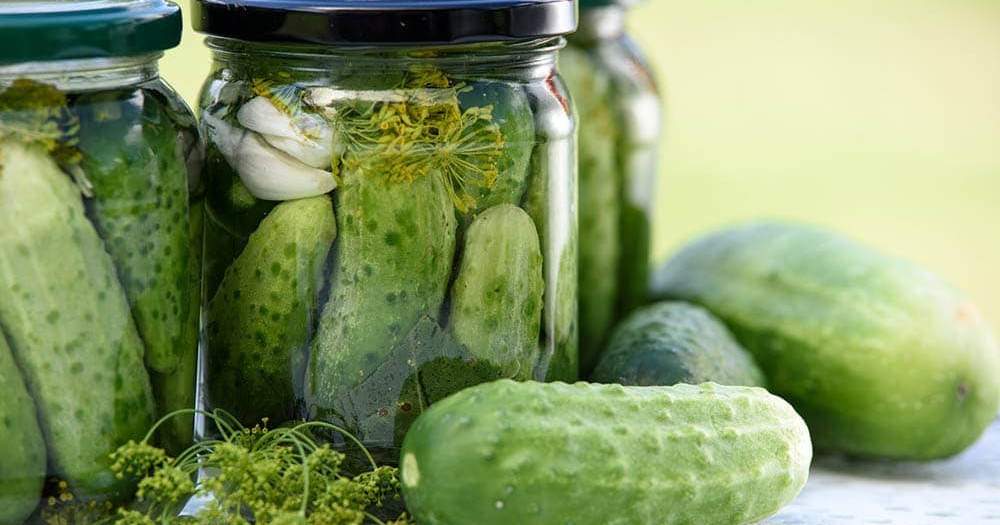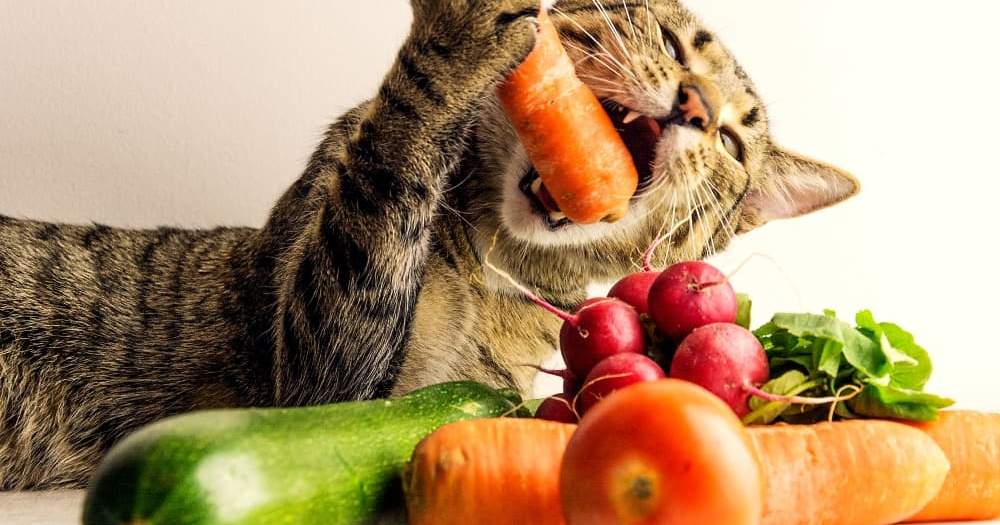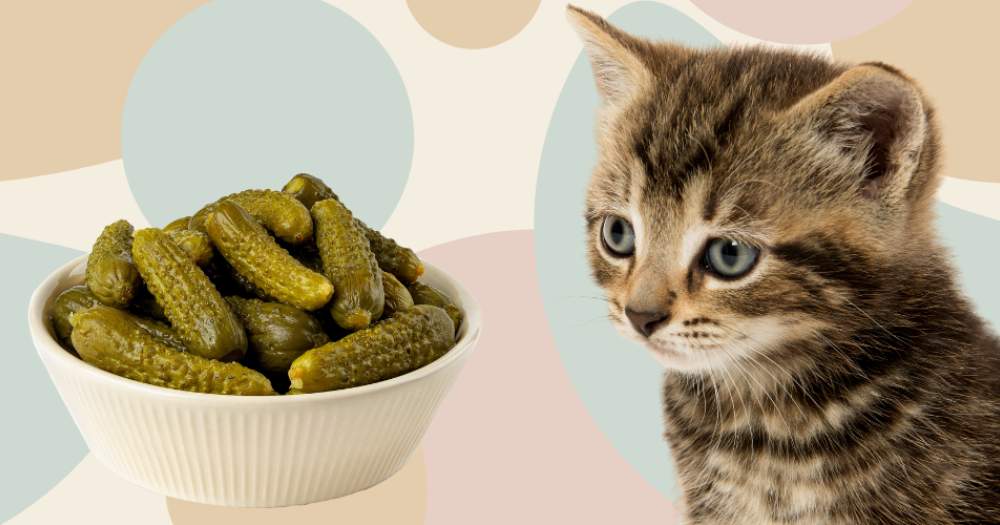All throughout the world, cats are adored as pets, and their owners frequently take great care to ensure their overall health, including their food. As a result, a lot of cat owners would be interested to learn whether or not their feline pals can consume human delicacies like pickles. Can cats eat pickles, which are a common human snack and condiment?
I’ll examine the issue of pickles being safe for cats to eat in this post, as well as the potential hazards and nutritional worth of this food for cats. To help cat owners make sure their pets eat a healthy, well-balanced diet, I’ll also list some other foods cats like that don’t have pickles.
Can Cats Eat Pickles?
The quick answer is no, pickles are not suggested for cats if you’re a cat owner and are wondering whether or not your furry companion can eat them. Pickles are not harmful to cats, but they are not a good meal for cats and can lead to a number of health issues.
Cats have unique nutritional requirements and need a combination of proteins, lipids, and nutrients to stay healthy. On the other hand, pickles typically have high salt content and little nutritious benefit. Pickle consumption by cats can result in a number of health problems, including salt toxicity and intestinal disorders.
Additionally, cats may have issues with the acidic vinegar required to pickle cucumbers. The sensitive digestive system of a cat may become irritated by the vinegar’s acidity, resulting in vomiting or diarrhea. As a result, it’s advised to never give pickles to your cat.
In spite of this, your cat will probably be fine if it unintentionally consumes a tiny bit of pickle or pickle juice. However, it’s crucial to seek veterinarian care straight away if your cat exhibits any symptoms of digestive distress or other health issues after eating pickles.
Nutritional Value of Pickles
Cucumbers are brined in vinegar, water, and salt to make pickles. Pickles are not a healthy diet for cats, despite the fact that they might make a nice snack for people. In actuality, pickles don’t provide much in the way of nutrients for felines.
The high salt level of pickles is one of the main issues with feeding them to cats. Due to the brine that is used to preserve pickles, they are frequently highly salty. Although cats only need little amounts of sodium, it is a vital nutrient for them. Cats who consume too much sodium risk dehydration as well as other health problems.
Pickles also don’t contain the vital components that cats require to flourish, such as protein, fat, and other minerals. Cats need a diet that is strong in animal protein and low in carbs because they are obligate carnivores. Pickles don’t have a lot of protein, and cats’ digestive systems can get irritated from the vinegar needed to pickle the cucumbers.
Overall, pickles are not a nutritious or healthful diet for cats, even though they may be a nice snack for people. To maintain your feline friend’s utmost health and wellbeing, it’s crucial to feed them a balanced, species-appropriate diet.
Are Pickles Safe for Cats?

Although pickles are not harmful to cats, they are neither a safe nor a nutritious diet for felines. Pickles’ high sodium concentration can be harmful to cats, especially those who already have kidney or cardiac issues. In addition, cats’ digestive systems can be affected by the corrosive vinegar used to pickle cucumbers, leading to vomiting or diarrhea.
Cats must have a diet rich in animal protein and low in carbs because they are obligate carnivores. Pickles do not contain much protein, and their high sodium level may even be detrimental to a cat’s health.
It’s recommended to avoid giving pickles to your cat and to maintain a diet that is balanced and suitable for the species. If your cat accidently eats a tiny amount of pickle, they should be fine. However, if they exhibit any signs of digestive distress or other health problems, you should seek immediate veterinary care.
Risks of Feeding Pickles to Cats
Because pickles contain a lot of sodium and are made with acidic vinegar, feeding pickles to cats can result in dehydration, electrolyte imbalances, and digestive problems.
Pickles have no nutritional value for cats and may even be unhealthy for them, especially if they already have kidney or cardiac problems. Avoid giving pickles to cats and feed them a balanced, species-appropriate diet instead.
Watch for signs of gastrointestinal distress in your cat if it unintentionally eats pickles or any other dangerous food, and seek veterinary care if necessary.
Alternatives to Pickles for Cats

There are many options to pick from that provide nutritional value and are less likely to upset your cat’s stomach if you’re seeking for safe and healthy treats for your feline buddy. Here are some substitutes for pickles that cats can eat:
- Meat: Cats must eat a lot of animal protein because they are obligate carnivores. Cooked chicken, turkey, or beef treats are delicious and a fantastic source of protein for your cat.
- Fish: Many cats enjoy the taste of fish, which is high in protein and omega-3 fatty acids. For a special treat every now and then, cooked salmon or tuna can be wonderful.
- Vegetables: Cats can benefit from tiny amounts of veggies in their diet even though they are predominantly carnivores. Green beans, roasted sweet potatoes, and carrots are examples of foods that can include fiber and vitamins.
- Cat-specific treats: There are lots of commercially available cat treats made exclusively for the nutrition and wellness of cats. Choose products with few additives and high-quality proteins.
To prevent weight gain or other health problems, treats should only constitute a small fraction of your cat’s diet and should only be given occasionally.
Conclusion
Pickles are not a healthy or safe food for cats, so they should not be included in their diet. Pickles do not provide any nutritional advantages to cats due to their high salt content and the acidic vinegar used in their production.
Stick to a balanced, species-appropriate diet instead, and think about giving your cat healthy substitutes like cooked meat, fish, or veggies, or readily available cat treats made with feline nutrition and health in mind.
Always check with your vet to make sure your cat’s food is suitable for their particular requirements and state of health.

